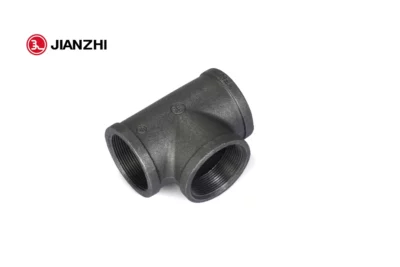Stainless steel and PVC pipe may be a better choice than black steel pipe in certain situations. Here are some examples:
Corrosive environments: Stainless steel pipe is highly resistant to corrosion, making it a good choice for applications where the pipe will be exposed to corrosive materials or environments. PVC pipe is also resistant to corrosion and is often used in applications where the pipe will be exposed to chemicals or other corrosive materials.
High temperatures: Stainless steel pipe is able to withstand high temperatures without weakening or degrading, making it a good choice for applications where the pipe will be exposed to high temperatures. PVC pipe, on the other hand, may soften or warp at high temperatures and may not be suitable for high-temperature applications.
Hygienic applications: Stainless steel pipe is easy to clean and does not harbor bacteria or other contaminants, making it a good choice for applications where hygiene is important, such as in the food and beverage industry. PVC pipe may be more difficult to clean and may harbor bacteria and other contaminants.
Chemical resistance: PVC pipe is highly resistant to many chemicals, making it a good choice for applications where the pipe will be exposed to chemicals. Stainless steel pipe may not be as resistant to chemicals and may be subject to corrosion in certain chemical environments.
Aesthetics: Stainless steel pipe has a shiny, polished appearance that some people prefer over the matte finish of black steel pipe. black pipe wholesale PVC pipe is available in a range of colors and may be a better choice for applications where aesthetics are important.
It’s important to consider the specific needs of each application when choosing the type of pipe to use. Pipefitters should consult with a qualified professional to determine the best type of pipe for their specific needs.
What are some common applications where PVC pipe is used due to its chemical resistance?
PVC pipe is commonly used in applications where its chemical resistance properties are important. Here are some examples of common applications:
Chemical processing: PVC pipe is used extensively in the chemical processing industry due to its resistance to many different chemicals, including acids, bases, and salts. It is used for the transport of chemicals, as well as for the construction of chemical processing equipment.
Water treatment: PVC pipe is commonly used in water treatment applications due to its resistance to corrosion and chemical attack. It is used for the transport of water and other fluids in water treatment plants, as well as for the construction of water treatment equipment.
Mining: PVC pipe is used in the mining industry for the transport of corrosive fluids and slurries. It is resistant to the chemicals and acids commonly found in mining environments and can withstand the high pressures required for mining operations.
Agriculture: PVC pipe is commonly used in agriculture for the transport of water and other fluids, as well as for irrigation systems. It is resistant to the chemicals found in fertilizers and pesticides and can withstand exposure to the sun and other environmental factors.
Laboratory and medical applications: PVC pipe is used in laboratory and medical applications due to its resistance to many chemicals and its ability to be sterilized. It is used for the transport of fluids and gases in laboratory and medical equipment, as well as for the construction of laboratory and medical devices.
It’s important to note that while PVC pipe is resistant to many chemicals, it may not be suitable for all chemical applications. It’s important to consult with a qualified professional to determine the best type of pipe for each specific chemical application.
